IMPEACHMENT: A Constitutional Imperative If Hillary Clinton Is Elected
Prevailing Gray Swans: The Clear and Present Danger List for the Week Ending November 4, 2016
8. A Constitutional crisis emergent from the Presidential election placing the United States at a crossroads
Deep Background and Threat Forensics: Briefing Focus
[economics | finance | politics | sociology | technology]
Introduction
Lurking on the foggy periphery of the American psyche for decades, a rapidly developing Prevailing Gray Swan has finally come to roost with a vengeance. This year’s presidential election process has been such an incessant, abominable circus that it has flipped a kill switch deep inside each of us that we didn’t know existed, perhaps evolutionarily serving as a societal-level purging mechanism in the guise of an epiphany. The epiphany is that the American people — in emergent collective disgust — are being abruptly forced to define who they are, what they stand for, and what they are willing to tolerate in terms of a viable government and who is fit and worthy to lead them. The biological trigger appears to be that the bar can go no lower, with these candidates our capacity to adapt finally hit rock-bottom in 2016. The consequences loom large: we are at a fork in the road and defaulting to the usual knee-jerk paths of least resistance — wanton denial or acceptance of the barely palatable — has now crash landed.
Date stamp of first publication. #ConstitutionalCrisis #Election2016https://t.co/OXn36LvzeN
— Deep Connections (@DC_Intelligence) November 2, 2016
Much has been written about this election but what is unique about this intelligence briefing is that the election and its machinations is crafted to be seen through the eyes of the US Constitution’s framers while they witness their magnificent creation’s breakdown, failure and aftermath. In doing so, this intelligence briefing is blind to political leanings; yes, it focuses on Secretary Clinton but that is only because her path delineates where the Constitutional crisis lies. In the process of presenting the facts, a major objective was to eviscerate all of the opacity, obfuscation and propaganda with laser focus. Then, with diligence, preserve only the quintessential skeletal elements of justice and government in a context of what those ideals should mean — must mean — in the 21st-century real-world despite its complexity, murkiness, consequences, brutal compromises, and frightening uncertainty. We urgently need to do this now; our current, severely distorted sense of justice needs to be recalibrated back to its original settings because failing such remedial response, a functional society will no longer be possible.
Simply: Americans are being forced to either defend the spirit of the US Constitution and the gifts it afforded while its ink was drying or detach from its essence and proceed down a dark path to immanent oblivion. The dilemma we face transcends the technicalities of academic law per se; fancy sheepskins are not required to be an equal participant in the determination of our fate, only lucid command of common sense: we now — no matter what walk of life — must look in the mirror, draw a line in the sand, and defend that position with spine, and, should push comes to shove, teeth.
Is America Sufficiently Awake to Realize It Is At a Crossroads?
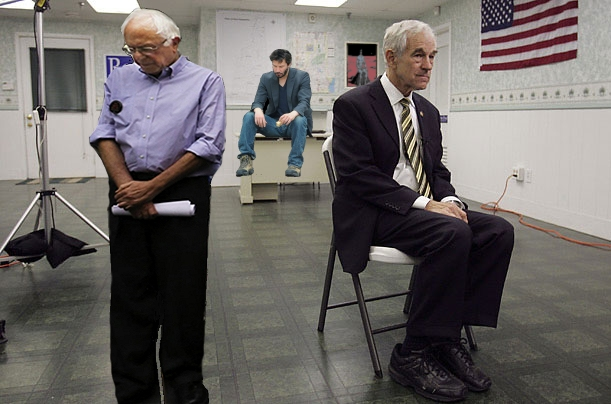
The world all agrees on little but can agree on one thing: if we were just coming off three Presidential debates between Ron Paul and Bernie Sanders we wouldn’t find ourselves in the present dire predicament; both of these men would be accepted — including their worts — as kin in the good graces of Socrates, Benjamin Franklin and Abraham Lincoln. Without a doubt, despite their differences and yours, we all must say they both would have the nation, its founding principles and the American people’s well-being and future in their hearts and do so in the highest light sans self-serving, ulterior motives. The skeletons in their closets do not resemble mass graves.

Unfortunately, Americans over the last half-century have gradually grown accustomed to Presidential elections that start with hope springs eternal but then painfully and inevitably devolves to a bitter choice between the lesser of two evils. Given a framework of two classically opposed political ideologies, both strategies would appeal at least superficially to the lion’s share of the electorate’s feasible aspirations. But that is not where we find ourselves this time — this time the lesser of two evils, if there is one, cannot be stomached. Additionally, the infrastructure of the two classical political ideologies has been hijacked by an entirely different albeit depressing polarity: the have-alls and the have-nots, but with no one championing the super majority — the have-nots. So, given this impasse, what to do?
Purpose and Structure
The ultimate aim of this intelligence briefing is, given present circumstances, to provide a robust, simple and unassailable argument that results in a set of contingencies that will invoke a Constitutional crisis. Yes, of course there is a legal layer but, much more significantly, there is a overarching, even transcendent second layer involving each and every American in the role of juror of a very special trial: what is truly being tried in the nation’s virtual courtroom composed of vast social networks is not just an individual but the minimum standard of integrity for anyone holding the Office of the President and also whether the legal apparatus (i.e. “the system” itself) currently in place has the spine to make that vital judgement on your behalf to your satisfaction when the time comes and it is coming soon. If it fails, then we have a bona fide Constitutional crisis on our hands and the baton is automatically passed from the dysfunctional federal government to the people at the state level, like it or not. When all trust in the federal government is lost, only the people can be trusted to do what is right and determine what comes next, come hell or high water. Given scant precedent, truth, at this juncture, can only come forth from the unmitigated chaos of grassroots interaction until a consensus from a viable quorum is achieved.
Why this warrants being a Prevailing Gray Swan is that the process and aftermath of structural change in the bowels of government can powerfully influence fragile financial markets and could foment violent civil unrest from potentially myriad and disparate origins. Fortunately, peaceful and effective forms of redress theoretically exist and should be explored patiently to their logical limit at all costs. But sadly, given the extreme gravity of this predicament, it is also very possible that nothing at all will become of it and, ergo, these words are stillborn in vain; the American public may very well sleepwalk through a deadly minefield of the status quo and then, in due time, whistle by their own graveyard. If so, then we get the government and leadership we deserve, one that reflects our own private constitution with crystal-clear fidelity and — going forward — we have no grounds for complaint for whatever forms of oppression that further tightens our self-inflicted noose.
Laying the Groundwork for an Emergent Constitutional Crisis
The FBI’s Personal Email Investigation of Secretary Clinton
The starting point is the FBI criminal investigation of Secretary Clinton that the public first gained awareness on March 3, 2015 in The New York Timesand then initially concluded on July 5, 2016 in regards to her use of personal email servers for State Department activity including the transmission of Classified information. This investigation was limited in scope to this only; it had nothing to do with WikiLeaks or anything else.
What the public did not understand that this was not a formal criminal investigation especially considering the fertile opportunity to pursue additional charges of perjury, espionage, theft of government property and obstruction of justice:
The FBI began investigating the Clinton email scandal in the spring of 2015, when The New York Times revealed Clinton’s use of a private email address for her official governmental work and the fact that she did not preserve the emails on State Department servers, contrary to federal law. After an initial collection of evidence and a round of interviews, agents and senior managers gathered in the summer of 2015 to discuss how to proceed. It was obvious to all that a prima-facie case could be made for espionage, theft of government property and obstruction of justice charges. The consensus was to proceed with a formal criminal investigation.
Six months later, the senior FBI agent in charge of that investigation resigned from the case and retired from the FBI because he felt the case was going “sideways”; that’s law enforcement jargon for “nowhere by design.” John Giacalone had been the chief of the New York City, Philadelphia and Washington, D.C., field offices of the FBI and, at the time of his “sideways” comment, was the chief of the FBI National Security Branch.
The reason for the “sideways” comment must have been Giacalone’s realization that DOJ and FBI senior management had decided that the investigation would not work in tandem with a federal grand jury. That is nearly fatal to any government criminal case. In criminal cases, the FBI and the DOJ cannot issue subpoenas for testimony or for tangible things; only grand juries can.
Giacalone knew that without a grand jury, the FBI would be toothless, as it would have no subpoena power. He also knew that without a grand jury, the FBI would have a hard time persuading any federal judge to issue search warrants. A judge would perceive the need for search warrants to be not acute in such a case because to a judge, the absence of a grand jury can only mean a case is “sideways” and not a serious investigation.
(Source: Fox News Opinion, Judge Andrew P. Napolitano, October 27, 2016, “What happened to the FBI? It’s been corrupted by Obama and his team”)
And a highly-qualified insider’s perspective:
“In my 25 years with the bureau, I never had any ground rules in my interviews,” said retired agent Dennis V. Hughes, the first chief of the FBI’s computer investigations unit.
Instead of going to prosecutors and insisting on using grand jury leverage to compel testimony and seize evidence, Comey allowed immunity for several key witnesses, including potential targets.
The immunity agreements came with outrageous side deals, including preventing agents from searching for any documents on a Dell laptop owned by former Clinton chief of staff Cheryl Mills generated after Jan. 31, 2015, when she communicated with the server administrator who destroyed subpoenaed emails.
Comey also agreed to have Mills’ laptop destroyed after the restricted search, denying Congress the chance to look at it and making the FBI an accomplice to the destruction of evidence.
(Source: New York Post, October 27, 2016, “FBI agents are ready to revolt over the cozy Clinton probe”)
There is also an open question regarding bribery:
At the end of the initial conclusions in this case FBI Director James Comeyspoke to the press on July 5, 2016:
and during Congressional testimony:
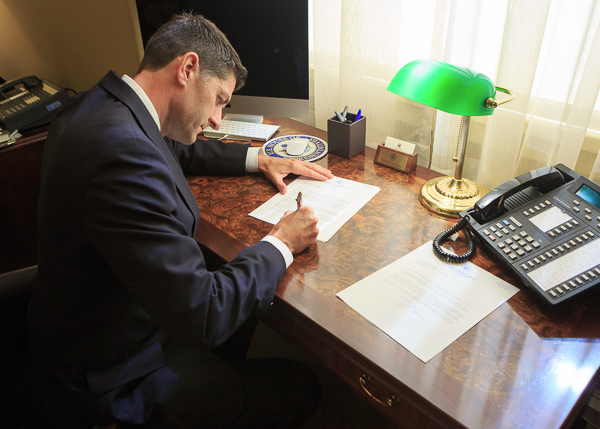
On the following day, July 6, Speaker of the House [of Representatives] Paul Ryan requested that Secretary Clinton be barred access to classified information due to the FBI findings:
[Correspondence to the Director of National Intelligence James R. Clapper]
and also asked FBI Director James Comey to release all unclassified findings in regards to the investigation and stated “many people — myself included — struggle to reconcile the case you made against Secretary Clinton with the decision against recommending prosecution.”
[Correspondence to FBI Director James Comey]
[Press conference with Speaker Paul Ryan on July 6, 2016 (video) | Source: Bloomberg]
In response from Director Clapper:
Speaker Paul Ryan’s attempt to stop presumptive Democratic presidential nominee Hillary Clinton from receiving intelligence briefings after she’s formally nominated has failed.
Director of National Intelligence James Clapper told the Wisconsin Republican in a letter obtained by The Hill that he does “not intend to withhold briefings from any officially nominated, eligible candidate.”
(Source: The Hill, July 11, 2016, “Intelligence director won’t deny Clinton classified briefings”)
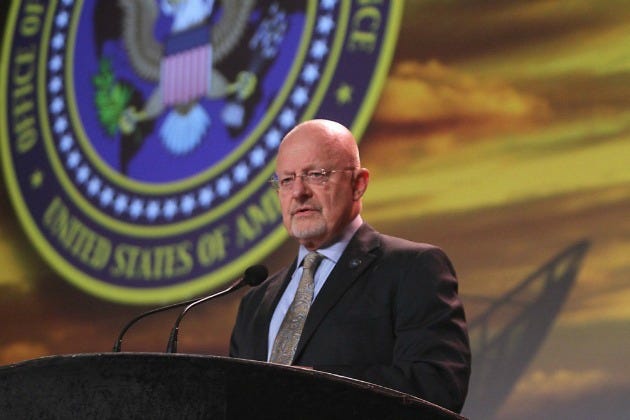
FBI Reopens the Case
FBI Dir just informed me, "The FBI has learned of the existence of emails that appear to be pertinent to the investigation." Case reopened
— Jason Chaffetz (@jasoninthehouse) October 28, 2016
When FBI Director Comey reopened the investigation on October 28, 2016, just hours later Speaker Paul Ryan once again requested that Director Clapper bar Secretary Clinton from access to Classified information:
I renew my call for the Director of National Intelligence to suspend all classified briefings for Secretary Clinton. https://t.co/NgzMLP6lsg
— Paul Ryan (@SpeakerRyan) October 29, 2016
[Press release on October 28, 2016 | Source: www.speaker.gov]
Many believe that Speaker Ryan is out of line or making grand political overtures to make these requests especially because he does not have the authority to execute his request to deny Secretary Clinton access to Classified information even though he is next in-line to be President after the Vice President. But what is vital to understand is that if Secretary Clinton were a sitting Secretary of State he not only would have the authority to begin formal proceedings to block her access but would also have the duty to do so.
Resultantly, if Secretary Clinton were to win the election he would have not only the legal authority but the duty to proceed the day she is inaugurated before she first sits down in the Oval Office because the Office of the Presidency is under the House’s jurisdiction to check the powers of the executive and judicial branches. But the proceedings would have much greater scope than this narrow matter and would wield absolute investigative power compared to the intensionally-hamstrung FBI proceedings. This will be explored in-depth shortly.
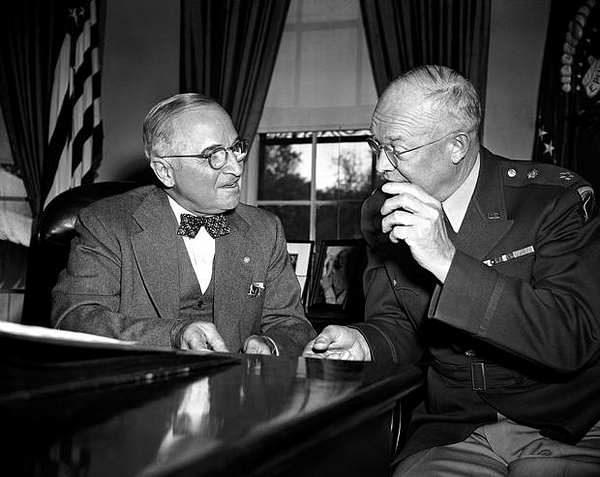
Given the clearly outlying conduct of the FBI’s investigation, Speaker Ryan has acted responsibly in regards to the spirit of the Constitution and his duty — first and foremost — to uphold its design of safeguarding the public from harm even though he lacks authority to provide this protection. What has emerged is a tragic flaw in the separation of powers: Secretary Clinton has gained access to Classified information granted under the authority of the executive branch but neither the legislative or judicial branch has the power to check said authority. Presidential nominees didn’t gain access to Classified information until President Truman authorized it 1952 and if they are not impeachable officers they lie outside of Congressional jurisdiction — this is a flaw that no one saw coming and places the public in harm’s way and cannot be written off as a “theoretical anomaly.” Director Clapper, serving as Director of National Intelligence, who reports directly to the President, is not to blame; he and the President should have the authority to grant but absolutely cannot possess sole authority to deny access to Classified information for Presidential nominees. This Achilles heel in regards to separation of powers will need to be redressed.
[U.S. Constitution: Separation of Powers | Source: Cornell University Law School]

Question: Would the framers approve or disapprove of Speaker Ryan’s actions so far?
Other facts relevant to the FBI proceedings (Note: there is no intent to be exhaustive here or connect the dots):
- Secretary Clinton was only interviewed for 3 1/2 hours
- Andrew McCabe was in charge of the investigation:
The political organization of Virginia Gov. Terry McAuliffe, an influential Democrat with longstanding ties to Bill and Hillary Clinton, gave nearly $500,000 to the election campaign of the wife of an official at the Federal Bureau of Investigation who later helped oversee the investigation into Mrs. Clinton’s email use.
Campaign finance records show Mr. McAuliffe’s political-action committee donated $467,500 to the 2015 state Senate campaign of Dr. Jill McCabe, who is married to Andrew McCabe, now the deputy director of the FBI.
(Source: The Wall Street Journal, October 24, 2016, “Clinton Ally Aided Campaign of FBI Official’s Wife: Group linked to Virginia Gov. Terry McAuliffe donated nearly half a million dollars to 2015 state Senate candidate”)
- Immunity deals instead of subpoenas or search warrants were offered to several people with intimate understanding of the email equipment and their use under investigation:
(Source: The Wall Street Journal, September 27, 2016, “James Comey’s Clinton Immunity: More questions about the FBI’s special handling of the email case”)
Understanding Impeachment Proceedings
Andrew McCarthy of the National Review in September 2016 advocated for the impeachment of Secretary Clinton while she is seeking Presidential election but not holding public office:
For months, I have been arguing that Hillary Clinton should be impeached. It is all well and good to prosecute a former government official for any crimes she has committed. Indeed, the Constitution expressly provides for criminal prosecution in addition to impeachment. Nevertheless, for the Framers — and, if we had common sense, for us — the imperative was to deprive a corrupt person of any further opportunity to abuse government power. Whether the official should also be convicted and sent to prison was not unimportant but, in the greater scheme of things, decidedly secondary.
Interestingly, the main pushback I received upon positing this argument was not that Mrs. Clinton is undeserving of impeachment. That, of course, is a measure of the seriousness of her high crimes and misdemeanors: the e-mail scandal; the reckless mishandling of classified information that has surely exposed our national-defense secrets to hostile powers; the mass destruction of thousands of government records after Congress asked for them; the obstruction of government investigations; the serial lies to Congress and the public; the shocking failure to provide security for Americans stationed in Benghazi and the failure to attempt to rescue them during a terrorist siege; the lies to the American people and to the families of murdered American officials about the cause of the attack; the trumping up of a prosecution against the video producer scapegoated for the Benghazi attack; the Clinton Foundation corruption involving the sale of influence for donations, the favors done for shady benefactors at the expense of national security, and the use of the State Department as an arm of the Clinton pay-to-play enterprise.
(Source: National Review, Andrew McCarthy, September 6, 2016, “Impeach Clinton to Bar Her from Holding Federal Office. It’s Constitutional.”)
Unfortunately, there is no successful precedent for such action due to failure of jurisdiction although it was attempted once (among legal scholars there still remains questions about this matter):
It appears that federal officials who have resigned have nonetheless been thought to be susceptible to impeachment and a ban on holding future office. Secretary of War William W. Belknap resigned two hours before the House impeached him, but the Senate nevertheless conducted a trial in which Belknap was acquitted. However, during the trial, upon objection by Belknap’s counsel that the Senate lacked jurisdiction because Belknap was now a private citizen, the Senate voted in favor of jurisdiction.
(Source: Congressional Research Service, p. 16, “Impeachment and Removal” (pdf))
Speaker Ryan, given his persistent pressure to bar Secretary Clinton from access to Classified information, displays his awareness of this shortcoming otherwise he would have sought a remedy within his grasp. Time to explore that remedy…
What does impeachment mean and entail?:
The impeachment process provides a mechanism for removal of the President, Vice President, and other “civil Officers of the United States” found to have engaged in “treason, bribery, or other high crimes and misdemeanors.” The Constitution places the responsibility and authority to determine whether to impeach an individual in the hands of the House of Representatives. Should a simple majority of the House approve articles of impeachment specifying the grounds upon which the impeachment is based, the matter is then presented to the Senate, to which the Constitution provides the sole power to try an impeachment. A conviction on any one of the articles of impeachment requires the support of a two-thirds majority of the Senators present.
(Source: Congressional Research Service, p. ii, “Impeachment and Removal”(pdf) | Reference: Impeachment | www.senate.gov)
Impeachment is not limited to criminal activities:
Congress has identified three general types of conduct that constitute grounds for impeachment, although these categories should not be understood as exhaustive:
(1) improperly exceeding or abusing the powers of the office;
(2) behavior incompatible with the function and purpose of the office; and
(3) misusing the office for an improper purpose or for personal gain.
(Source: Congressional Research Service, p. ii, “Impeachment and Removal”(pdf))
Impeachment is not about inflicting punishment for criminal activity; it is about safeguarding the public from individuals unfit for duty, to prevent public endangerment or remove those unworthy of our trust:
The purposes underlying the impeachment process also indicate that non-criminal activity may constitute sufficient grounds for impeachment. The purpose of impeachment is not to inflict personal punishment for criminal activity. In fact, the Constitution explicitly makes clear that impeached individuals are not immunized from criminal liability once they are impeached for particular activity. Instead, impeachment is a “remedial” tool; it serves to effectively “maintain constitutional government” by removing individuals unfit for office. Grounds for impeachment include abuse of the particular powers of government office or a violation of the “public trust” — conduct that is unlikely to be barred via statute.
(Source: Congressional Research Service, p. 8, “Impeachment and Removal”(pdf))
Impeachment is retroactive to behaviors done prior while holding an office that was subject to impeachment (e.g. Secretary of State) given that one is currently holding an office subject to impeachment (e.g. President) (Ibid. p.15).
It is the duty and responsibility of the House of Representatives to initiate action to bar individuals unfit or unworthy of office within its jurisdiction. Unlike the FBI investigation which was a criminal proceeding, impeachment has an entirely different objective and mandate. In a criminal proceeding the burden of proof is “beyond a reasonable doubt” and “innocent until proven guilty” thus it errs on the side of certainty of a crime being committed. In concert, a jury must be unanimous. However, in an impeachment process justice sides with maintenance of the integrity of the Constitution and public safety, not with certainty of wrongdoing or even presence of criminal conduct (e.g. citing a specific statute is not required). In concert, only a two-thirds majority are required to convict. The trial is held by the Senate and in the case of the President, the Chief Justice of the US Supreme Court presides in lieu of the Vice President. The Senators perform their duty as jurors to preserve the Constitution at all costs which is embraced by their oath of office:
I do solemnly swear (or affirm) that I will support and defend the Constitution of the United States against all enemies, foreign and domestic; that I will bear true faith and allegiance to the same; that I take this obligation freely, without any mental reservation or purpose of evasion; and that I will well and faithfully discharge the duties of the office on which I am about to enter: So help me God.
(Source: Oath of Office | www.senate.gov)
Case Study of Corruption and Abuse of Power: War Secretary Belknap’s Case for Impeachment in 1876
William Worth Belknap (September 22, 1829 — October 12, 1890) was a lawyer, soldier in the Union Army, government administrator in Iowa, and the 30th United States Secretary of War. Although Belknap served with distinction in the Civil War, his tenure as President Grant’s Secretary of War was controversial, with Belknap accused of indirectly selling weapons to France while the United States was ostensibly neutral during the Franco-Prussian War, and accepting illicit kickbacks in exchange for making a tradership appointment; traders received exclusive rights to sell goods at U.S. military posts, making the appointments lucrative and highly sought after. The trader post scandal led to Belknap’s resignation, impeachment by the House, and trial by the Senate during the summer of 1876.
(Source: Wikipedia)
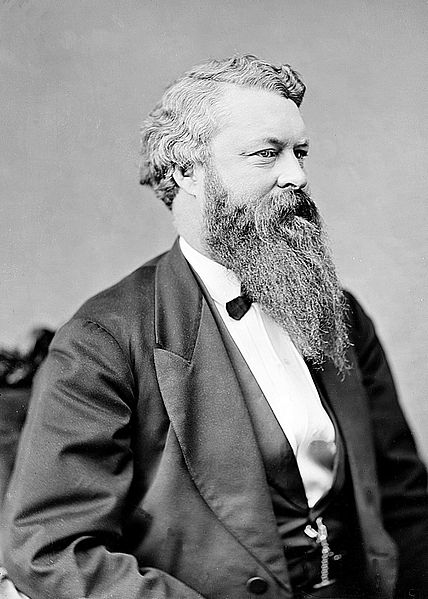
It is informative now to revisit Secretary Belknap’s case for impeachment in 1876, the same case discussed above in regards to jurisdiction but now will be presented in light of Congressional tolerance of corruption and abuse of power:
At issue was the behavior of William Belknap, war secretary in the administration of President Ulysses Grant. A former Iowa state legislator and Civil War general, Belknap had held his cabinet post for nearly eight years. In the rollicking era that Mark Twain dubbed the Gilded Age, Belknap was famous for his extravagant Washington parties and his elegantly attired first and second wives. Many questioned how he managed such a grand life style on his $8,000 government salary.
By early 1876, answers began to surface. A House of Representatives’ committee uncovered evidence supporting a pattern of corruption blatant even by the standards of the scandal-tarnished Grant administration.
The trail of evidence extended back to 1870. In that year, Belknap’s luxury-loving first wife assisted a wheeler-dealer named Caleb Marsh by getting her husband to select one of Marsh’s associates to operate the lucrative military trading post at Fort Sill in Indian territory. Marsh’s promise of generous kick-backs prompted Secretary Belknap to make the appointment. Over the next five years, the associate funneled thousands of dollars to Marsh, who provided Belknap regular quarterly payments totaling over $20,000.
On March 2, 1876, just minutes before the House of Representatives was scheduled to vote on articles of impeachment, Belknap raced to the White House, handed Grant his resignation, and burst into tears.
This failed to stop the House. Later that day, members voted unanimously to send the Senate five articles of impeachment, charging Belknap with “criminally disregarding his duty as Secretary of War and basely prostituting his high office to his lust for private gain.”
The Senate convened its trial in early April, with Belknap present, after agreeing that it retained impeachment jurisdiction over former government officials. During May, the Senate heard more than 40 witnesses, as House managers argued that Belknap should not be allowed to escape from justice simply by resigning his office.
On August 1, 1876, the Senate rendered a majority vote against Belknap on all five articles. As each vote fell short of the necessary two thirds, however, he won acquittal. Belknap was not prosecuted further; he died in 1890.
Years later, the Senate finally decided that it made little sense to devote its time and energies to removing from office officials who had already removed themselves.
(Source: The US Senate (www.senate.gov), “May 1876: War Secretary’s Impeachment Trial” | original source: Bushnell, Eleanore, “William W. Belknap,” in Crimes, Follies and Misfortunes: The Federal Impeachment Trials,Urbana: University of Illinois Press, 1992)
Members of both chambers of Congress were outraged with Secretary Belknap’s “…basely prostituting his high office to his lust for private gain.”Keep Congressional sentiment in mind as Secretary Clinton’s case is assembled: Times change, ethics do not. The ethical standards for an impeachment trial remain constant; there never are grounds to lower the bar. Corruption is corruption, whether it spawned in the cradle of democracy — ancient Greece — or the current US government.
Role of WikiLeaks
#PodestaEmails human network explorer https://t.co/sYFe7tHudn pic.twitter.com/F5eDCdaqts
— WikiLeaks (@wikileaks) October 30, 2016
Before continuing, it is important to gain perspective on the merits of Wikileaks. WikiLeaks has functioned as a magnifying glass allowing the electorate to see clearly for the first time the termites gnawing away at the foundations of justice and the lucrative spoils of governance writ large. Given this precious utility, WikiLeaks is of substantial benefit to society no matter if they were gifted by Martians, Russians, or a cadre of hoodied hackers.
Question: What would the current national zeitgeist be for this election cycle if WikiLeaks never existed?
Question: What would the framers think of WikiLeaks?
A Brief Tour of Secretary Clinton’s Transgressions
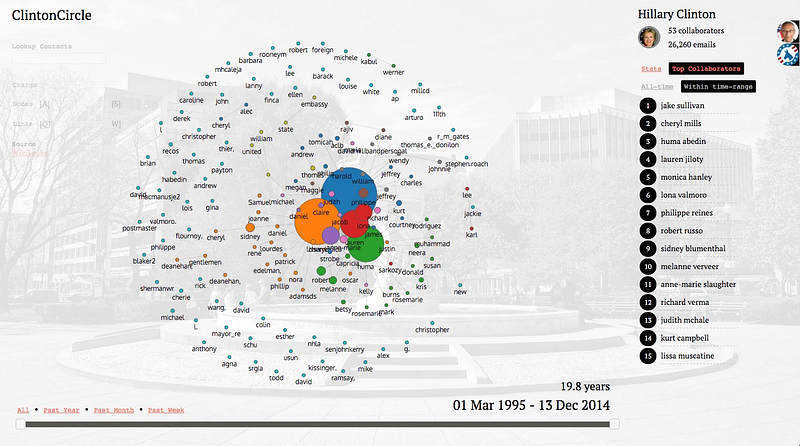
[proof that WikiLeaks emails are authentic: source 1 | source 2 | source 3]
MIT Media created a dynamic social graph of Secretary Clinton’s emails resident on WikiLeaks (see it in action). Along with the website The 100 Most Damaging WikiLeaks, clearly there are open source tools available to explore their ramifications in-depth and serve as powerful tools for organizing comprehensive legal discovery. But once again, the purpose of this intelligence briefing is: not to be exhaustive, not to focus on WikiLeaks, and nor is it about Secretary Clinton per se. Instead, its office and purpose is solely to provide necessary and sufficient evidence for a Constitutional crisis if certain conditions arise. Given that purpose, let’s continue.
Bob Woodward and Carl Bernstein were the two journalists that broke the story of Watergate in The Washington Post in 1972 and eventually forced President Nixon to resign before he was impeached; their opinions carry significant weight given their iconic status. Bob Woodward has recently commented on the magnitude of corruption in the Clinton Foundation:
http://www.youtube.com/watch?v=RcNBzwGt2I4
and Carl Bernstein commented on the FBI’s reopening of the private email investigation:
http://www.youtube.com/watch?v=hbPwM6JFAOI
Comments from Nicolle Wallace, former White House Communications Director under President George W. Bush in regards to recent WikiLeaks vis-à-vis the Clinton Foundation:
New Wikileaks release: Inside 'Bill Clinton Inc.' https://t.co/lbR21GVtoP
— Morning Joe (@Morning_Joe) October 27, 2016
Bill Gavin, former New York Assistant Director of the FBI in regards to possible perjury stemming from Congressional hearings:
http://www.youtube.com/watch?v=LpoJmtWrPzA
Now something very important because this part involves your crucial role as both a witness and juror. Listen again to Director Comey’s comments (in the video immediately below) at the Press Conference on July 5, 2016 but this time imagine those same statements being used as testimony in the impeachment trial of Secretary (now President) Clinton in front of the Senate presided by Chief Justice John Roberts. He may not of uttered those words if he considered how they would be interpreted in the radically different legal ecosystem of a Presidential impeachment trial. Given the judging criteria to “support and defend the Constitution of the United States against all enemies, foreign and domestic” this particular article of impeachment supported by those verbal statements would command a unanimous conviction and do so dead to rights clear as a bell. There is no wiggle room to sidestep conviction — an impeachment trial is not a criminal proceeding and there is clear and present danger to public well-being.
Understand: there is no requirement to prove malicious intent here, all that is needed is evidence of a business practice that harbored great risk to the public at large — and, in this case, the behavior was blatant, reckless and sustained. If this were chess, it is checkmate. Rest assured, there would be several rock-solid articles of impeachment as robust as this one to choose from but, in toto, the preponderance of evidence would simply overwhelm comprehension and would yield a fait accompli.
The only question of gravity remaining is the allegiance and integrity of the jurors; as for them, the electorate — and world — would act as the jury’s jury and keep score. And that is ground zero for Constitutional crisis:
Does the Senate have the integrity to do its duty?
Stately differently: Will members of both chambers of Congress be outraged with [then] Secretary Clinton’s “…basely prostituting her high office to her lust for private gain.”[?]
[FBI Director James Comey, July 5, 2016, Complete public statement (transcript) | Source: fbi.gov]
Course of Events Leading to Constitutional Crisis
- Secretary Clinton wins the Presidential election and becomes President-elect Clinton. The House of Representatives (“House”) still cannot bar her from access to Classified information because she is not yet President.
- President Clinton is inaugurated.
- The House now has jurisdiction and can proceed with the impeachment process performing discovery and then drafting articles of impeachment (“articles”).
- The House votes on the articles. A simple majority is required to qualify an article for the next step.
- The House transfers the qualified articles to the Senate.
- The Senate commences the trial phase of the impeachment process and is presided by Supreme Court Chief Justice John Roberts.
- The Senate votes on the articles. A two-thirds majority on any article results in a conviction and President Clinton is removed from office and then Vice President Kaine becomes President. President Clinton’s access to Classified information would now be revoked.
[Background: An Overview of the Impeachment Process (pdf) | Source: CRS Report for Congress]
If steps 1 through 7 occur as above then there is no Constitutional crisis — otherwise there is.
If there is no initiation of impeachment at all (step 3) (which also means Speaker Ryan — oddly, if not suspiciously — terminates his efforts to bar President Clinton from Classified information even though now he finallyhas the power to execute the only remedy), this would be an egregious breach of justice and there will be civil unrest if Americans are awake enough to realize they are waking up to a failed government. A failure could also occur at step 4 otherwise passage proceeds to step 7, the Senatorial vote.
The Senatorial vote will not only determine whether President Clinton remains in office or not but will also expose which Senators fail to uphold their oath to preserve and protect the Constitution. The problem is not a lack of competence in judgement (proof is unassailable (binary decision: black or white)) but in defective allegiances (corruption). The impeachment process will fishbowl just how corrupt our government has become and would — by definition via legal precedent at the Congressional level — establish perverse ethical conduct and judgement and protocol standards (e.g. new legally-acceptable standards for Classified document storage and transmission, etc.).
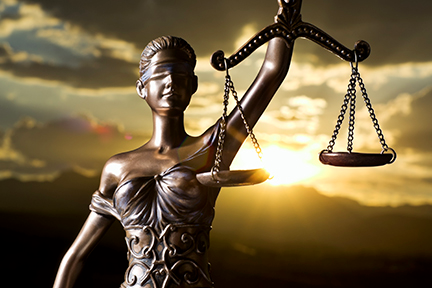
Why America Is at a Crossroads: Putting the Presidential Election in Proper Perspective
Now we bring in the framers to assess how their creation — the Constitution — has withstood the trials and tribulations of time. Also, you are put to the test in regards to:
- knowing how government was originally intended to function and why it needs to perform that way; and
- being provided case history and current evidence to weigh out and to do so blind to false allegiances and political bias.
If the framers replaced the current Senators during the impeachment trial, how would they vote?
If you were a Senator during the impeachment trial, how would you vote?
What would the framers think of Secretary Clinton in private discussion amongst themselves?
Given the impeachment cases against President Nixon, Secretary Belknap, President Bill Clinton, and (President) Hillary Clinton, how would the framers rank them with respect to fitness, trustworthiness, and ethical conduct to be President?
How would you rank them and why?
The prosecution rests.
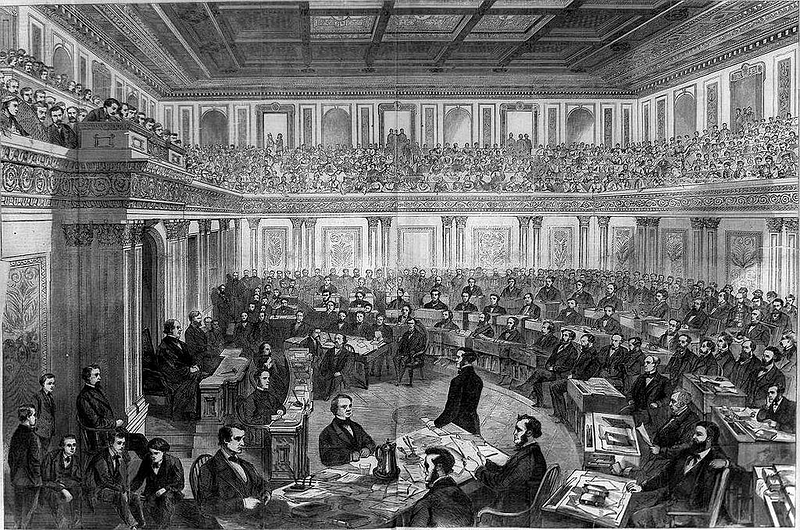
After the Constitution Fails, What Then?
Let’s assume there was a failure somewhere in the chain from impeachment to conviction and now the electorate — bearing witness — must face the immediate aftermath of a failed federal government. The next step ventures immediately into dangerous, uncharted waters because there is no US Constitutional guidance once the Constitution has proven to not hold. Some would say that is ammunition for a robust Second Amendment but let’s set that aside and assume that the pen is mightier than the sword.
There have been legal opinions drafted by the US Supreme Court in regard to state’s rights to secede:
In the case of Texas v. White in 1869, Supreme Court Chief Justice Salmon P. Chase wrote that, “The union between Texas and the other states was as complete, as perpetual, and as indissoluble as the union between the original states. There was no place for reconsideration or revocation, except through revolution or through consent of the States.” The majority opinion struck down the Texas Ordinance of Secession, calling it “null,” and crafted a decision that rendered all acts of secession illegal according to the “perpetual union” of both the Articles of Confederation and subsequent Constitution for the United States. Chase did leave an opening, “revolution or the consent of the States,” but without either, secession could never be considered a legal act.
(Source: The American Conservative, Brion McClanahan, “Is Secession Legal?”)
US Supreme Court Justice Antonin Scalia concurred that states do not have the right to secede:
Scalia argued that a the question was not in the realm of legal possibility because 1) the United States would not be party to a lawsuit on the issue 2) the “constitutional” basis of secession had been “resolved by the Civil War,” and 3) there is no right to secede, as the Pledge of Allegiance clearly illustrates through the line “one nation, indivisible.”
(Source: The American Conservative, Brion McClanahan, “Is Secession Legal?”)
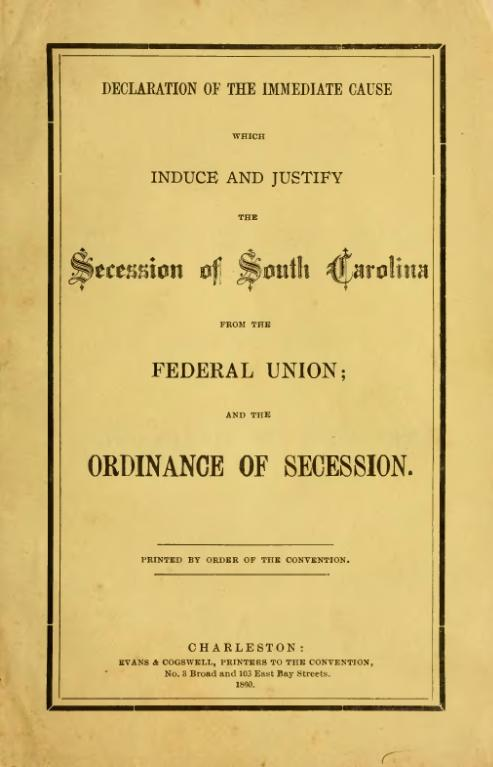
The problem with these positions is they assume that the status of the US Constitution has valid standing; it dismisses the possibility that the people and the states no longer find the federal government legitimate. Assuming the states no longer recognize the federal government due to clear failure to withhold the US Constitution, logically it falls to the state level to determine a course of action and is the only orderly and peaceful remedy in response to a failed federal government. This contingency is not addressed at the federal level but it is at the level of state Constitutions and/or their Bill of Rights.
Examples
New Hampshire
…Constitution guarantees its citizens the right to reform government, in Article 10 of the New Hampshire Constitution’s Bill of Rights: Whenever the ends of government are perverted, and public liberty manifestly endangered, and all other means of redress are ineffectual, the people may, and of right ought to reform the old, or establish a new government. The doctrine of nonresistance against arbitrary power, and oppression, is absurd, slavish, and destructive of the good and happiness of mankind.
Kentucky
…Constitution also guarantees a right to alter, reform or abolish their government in the Kentucky Bill of Rights: All power is inherent in the people, and all free governments are founded on their authority and instituted for their peace, safety, happiness and the protection of property. For the advancement of these ends, they have at all times an inalienable and indefeasible right to alter, reform or abolish their government in such manner as they may deem proper.
Texas
The Constitution of Texas, Article 1, Sect 2: All political power is inherent in the people, and all free governments are founded on their authority, and instituted for their benefit. The faith of the people of Texas stands pledged to the preservation of a republican form of government, and, subject to this limitation only, they have at all times the inalienable right to alter, reform or abolish their government in such manner as they may think expedient.
(Source for the above three references to state governance: Wikipedia)
Once again, the purpose here is not to be exhaustive of the state-level apparatus in-place to remedy a failed federal or state government but to provide a plausible roadmap for a sound and sane course of action.
For example, in the case of Texas, 40% of Texans would support secession if Secretary Clinton won the election:
Fortunately for Unionists, a clear majority of 59 percent of Texans said they’d rather stick with the Stars and Stripes, while just 26 percent said they wouldn’t. But that number dropped when the pollsters followed up by asking whether voters would support secession if Clinton won the election. Forty percent said they would, including 61 percent of Trump supporters.
(Source: The Atlantic, August 16, 2016, “Will Texas Stick Around for a Hillary Clinton Presidency?”)
Understand: this poll was tabulated by a Democratic entity in August 2016 before there was consummate digestion of the lion’s share of WikiLeaks and before the state of Texas (and other states), with the people behind them, have declared that the federal government has lost legitimacy due to Congress’ failure to impeach and convict President (Hillary) Clinton. In all likelihood, there would be a meeting of the 50 state governors to create a state-level quorum to determine a course of action navigated on peaceful bearings. State secession overtures in modern times have been deemed grandstanding spectacles but under these radical circumstances transform in a heartbeat from spectacle to obligate responsibility to the people they serve and protect.
Parting Comments
The reason why millions of people will vote for Secretary Clinton is that they don’t understand that if they do so then the House would be immediately obligated to begin the process of impeachment to remove her from office. At minimum, due to the findings of the FBI investigation, the House must act to bar her from access to Classified information and most likely many other illegal or unethical transgressions that violate behavior standards — in individual and in toto — allowable in light of the spirit of the US Constitution for a sitting President.
My greatest fear, however, even more than a violent second civil war, is that the vast majority of Americans do not realize that in a matter of a few months they may no longer have a viable government and then just keep on obliviously sleepwalking until their immanent demise.
On a personal note, when I worked at Lockheed Missiles & Space Company in the 1980s as an electrical engineer on the Trident nuclear missile, I had secret security clearance for many years. If I had taken even a single Classified document home with me for one night and got caught, I would have gone to Federal prison.
If you agree with the soul of this document, please forward it using email, Facebook and Twitter to your contacts so it has a louder voice than my meager lone voice straining in a now deafening wind. If you have a connection to get it to a major hub, that would be much appreciated.
When I make updates or if there are corrections to be made as people email me, I will make them to the body of the document, not as footnoted errata. This is a living document just like the other Prevailing Gray Swans. Together, from a neutral point of view, they tell the unvarnished truth about the world we live in, layer by layer.
/ja

How are these intelligence briefings created?
Prepared by: James Autio
doctorgo@gmail.com
Conflict of interest: none
Political affiliations: none
___
Prevailing Gray Swans (8): November 4, 2016 – DeepConnections – Medium
